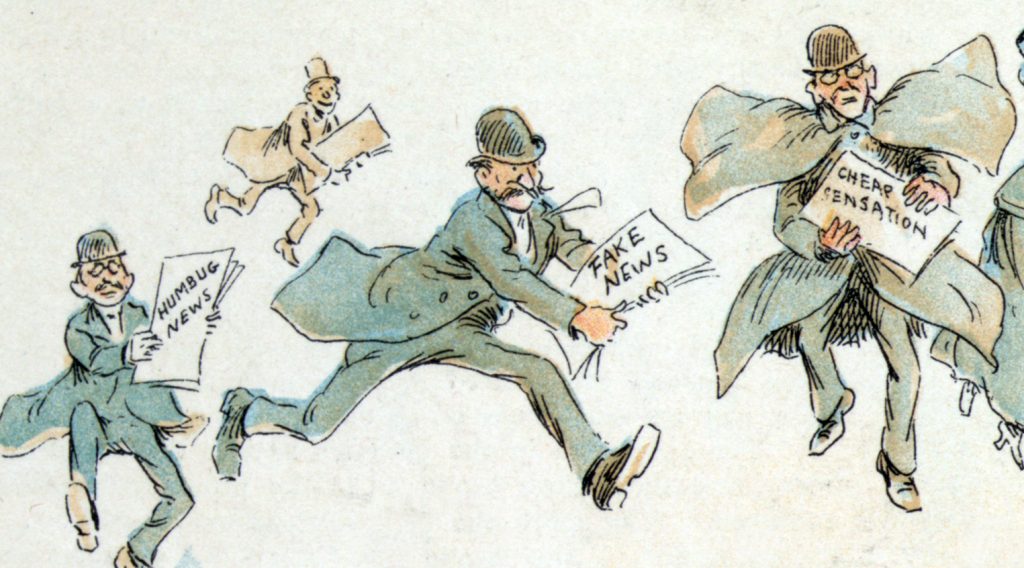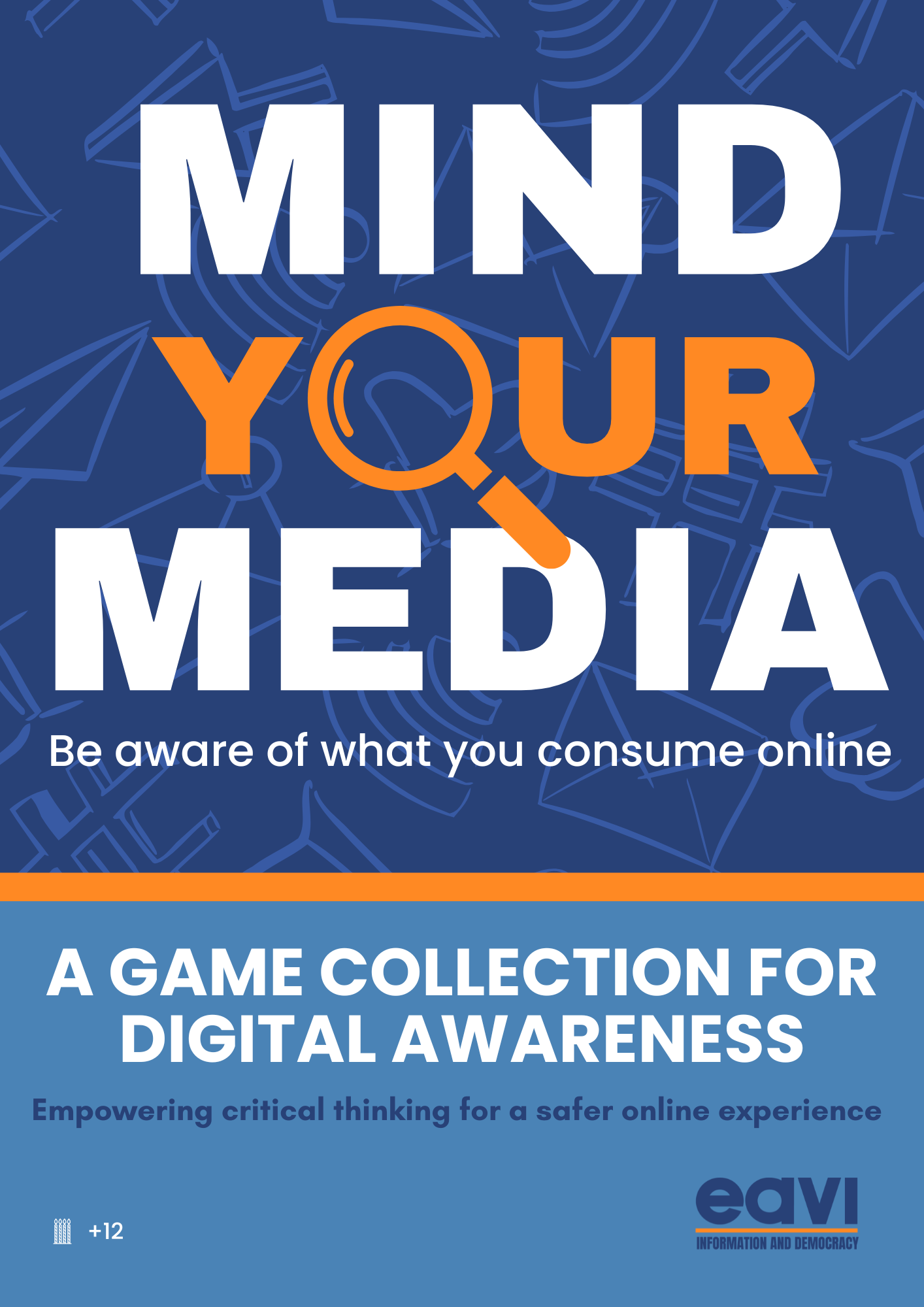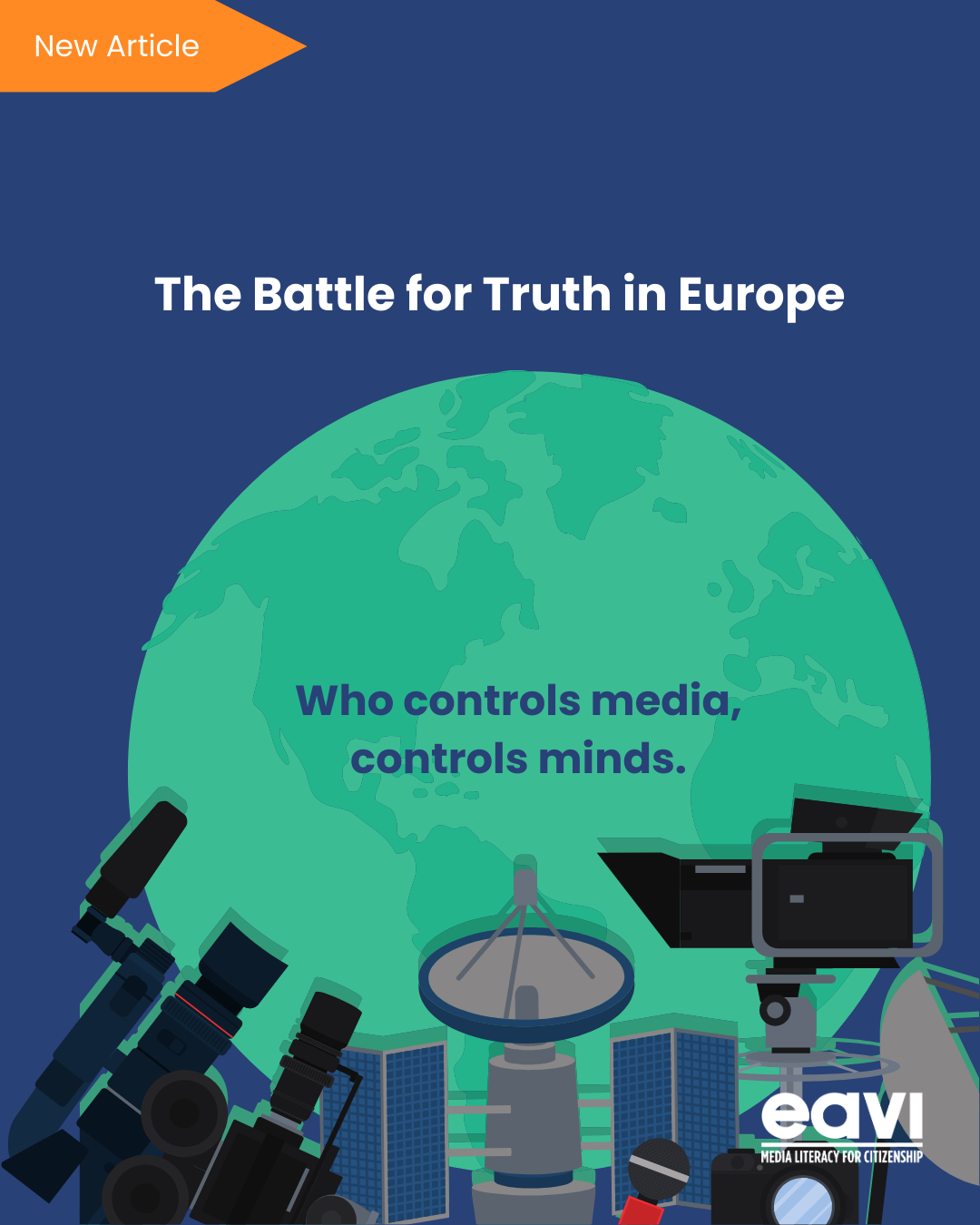
The European Commission has published its High Level Expert Group (HLEG) Report to advise the EC on fake news and disinformation online. It is the first time that relevant stakeholders have convened and agreed steps to be taken to combat disinformation, including representatives of industry giants like Google, Twitter and Facebook, as well as academics, journalists and civil society organisations.
EAVI welcomes the report as a positive first step towards recognising the danger disinformation poses, and recommending initial actions towards combating it.
In light of recent (and not so recent) events in Europe, including elections and growing euroscepticism, media literacy and the role of disinformation in public discourse are moving further up the agenda of the EC. And with good reason. There is growing need to harness the opportunities media provides, and through it promote civic engagement. However, the inherent threats of media must be addressed at all levels, including in European policy.
In February, EAVI responded to a public consultation from the Commission addressed to legal entities and journalists across the European Union. It was designed to glean an insight on the “rationale and possible directions for action at EU and/ or national level”. This consultation will be complemented later on with a Eurobarometer public opinion survey. The input is also meant to incentivise discussion on the spread of disinformation online at a EU level.
The questionnaire addressed different dimensions of fake news including: the scope of the problem; assessment of measures already taken by online platforms; news media organizations and civil society organizations to counter the problem; and the scope for possible future actions to improve access to reliable information online; and reduce the spread of disinformation online.
EAVI emphasised the importance of distinguishing between misinformation and disinformation when analysing the issue. We also described the factors that potentially contribute to the spread of this phenomenon, including a lack of scope from policy makers on media literacy initiatives.
In addition, EAVI exposed the potential of making social media platforms subject to full EU tax – contrary to existing rules that dictate the behavior of these huge tech corporates, this measure would at least contribute to media literacy programmes or to create technical tools to fight fake news.
One of the key aspects asserted by EAVI was the importance of holding social media platforms accountable for the content they share, “by accepting duty of care for their users not to be exposed to mis- and dis- information on their platforms”. At the same time, we suggested a series of measures that these entreprises could implement to protect their users from being exposed to fake news articles and bots.
A second dimension of the survey consisted on a description of the measures that news media organizations could take themselves, including to ensure retraction and apologies have equal exposure as the original lie.
In addition to the suggestions that social media companies and news media organizations improve their practices themselves, EAVI emphasised the role of civil society organizations. These entities could promote media literacy for all Europeans by collaboration with the main actors of the online media field, and not excluding regulatory bodies and individuals themselves to “enable individuals to better navigate the new media environment”.
All in all, the issuance of this publication represents a growing concern of types of disinformation spread online and the existential threat that it represents to Europe. It is clear that the Commission now looks to counter that threat that from various angles.
Collaboration to fight the phenomenon of fake news is key and policy design and strategic prioritization of media literacy on the EC agenda are essential to achieve it. We maintain that serious policy debate and action, together with a package of regulations and duties encumbant on all players, from national governments, mainstream media organisations, civil society groups and citizens themselves, Europe can weather the media storm.
We will soon publish an EAVI report on fake news and disinformation.

The European Commission has published its High Level Expert Group (HLEG) Report to advise the EC on fake news and disinformation online. It is the first time that relevant stakeholders have convened and agreed steps to be taken to combat disinformation, including representatives of industry giants like Google, Twitter and Facebook, as well as academics, journalists and civil society organisations.
EAVI welcomes the report as a positive first step towards recognising the danger disinformation poses, and recommending initial actions towards combating it.
In light of recent (and not so recent) events in Europe, including elections and growing euroscepticism, media literacy and the role of disinformation in public discourse are moving further up the agenda of the EC. And with good reason. There is growing need to harness the opportunities media provides, and through it promote civic engagement. However, the inherent threats of media must be addressed at all levels, including in European policy.
In February, EAVI responded to a public consultation from the Commission addressed to legal entities and journalists across the European Union. It was designed to glean an insight on the “rationale and possible directions for action at EU and/ or national level”. This consultation will be complemented later on with a Eurobarometer public opinion survey. The input is also meant to incentivise discussion on the spread of disinformation online at a EU level.
The questionnaire addressed different dimensions of fake news including: the scope of the problem; assessment of measures already taken by online platforms; news media organizations and civil society organizations to counter the problem; and the scope for possible future actions to improve access to reliable information online; and reduce the spread of disinformation online.
EAVI emphasised the importance of distinguishing between misinformation and disinformation when analysing the issue. We also described the factors that potentially contribute to the spread of this phenomenon, including a lack of scope from policy makers on media literacy initiatives.
In addition, EAVI exposed the potential of making social media platforms subject to full EU tax – contrary to existing rules that dictate the behavior of these huge tech corporates, this measure would at least contribute to media literacy programmes or to create technical tools to fight fake news.
One of the key aspects asserted by EAVI was the importance of holding social media platforms accountable for the content they share, “by accepting duty of care for their users not to be exposed to mis- and dis- information on their platforms”. At the same time, we suggested a series of measures that these entreprises could implement to protect their users from being exposed to fake news articles and bots.
A second dimension of the survey consisted on a description of the measures that news media organizations could take themselves, including to ensure retraction and apologies have equal exposure as the original lie.
In addition to the suggestions that social media companies and news media organizations improve their practices themselves, EAVI emphasised the role of civil society organizations. These entities could promote media literacy for all Europeans by collaboration with the main actors of the online media field, and not excluding regulatory bodies and individuals themselves to “enable individuals to better navigate the new media environment”.
All in all, the issuance of this publication represents a growing concern of types of disinformation spread online and the existential threat that it represents to Europe. It is clear that the Commission now looks to counter that threat that from various angles.
Collaboration to fight the phenomenon of fake news is key and policy design and strategic prioritization of media literacy on the EC agenda are essential to achieve it. We maintain that serious policy debate and action, together with a package of regulations and duties encumbant on all players, from national governments, mainstream media organisations, civil society groups and citizens themselves, Europe can weather the media storm.
We will soon publish an EAVI report on fake news and disinformation.

The European Commission has published its High Level Expert Group (HLEG) Report to advise the EC on fake news and disinformation online. It is the first time that relevant stakeholders have convened and agreed steps to be taken to combat disinformation, including representatives of industry giants like Google, Twitter and Facebook, as well as academics, journalists and civil society organisations.
EAVI welcomes the report as a positive first step towards recognising the danger disinformation poses, and recommending initial actions towards combating it.
In light of recent (and not so recent) events in Europe, including elections and growing euroscepticism, media literacy and the role of disinformation in public discourse are moving further up the agenda of the EC. And with good reason. There is growing need to harness the opportunities media provides, and through it promote civic engagement. However, the inherent threats of media must be addressed at all levels, including in European policy.
In February, EAVI responded to a public consultation from the Commission addressed to legal entities and journalists across the European Union. It was designed to glean an insight on the “rationale and possible directions for action at EU and/ or national level”. This consultation will be complemented later on with a Eurobarometer public opinion survey. The input is also meant to incentivise discussion on the spread of disinformation online at a EU level.
The questionnaire addressed different dimensions of fake news including: the scope of the problem; assessment of measures already taken by online platforms; news media organizations and civil society organizations to counter the problem; and the scope for possible future actions to improve access to reliable information online; and reduce the spread of disinformation online.
EAVI emphasised the importance of distinguishing between misinformation and disinformation when analysing the issue. We also described the factors that potentially contribute to the spread of this phenomenon, including a lack of scope from policy makers on media literacy initiatives.
In addition, EAVI exposed the potential of making social media platforms subject to full EU tax – contrary to existing rules that dictate the behavior of these huge tech corporates, this measure would at least contribute to media literacy programmes or to create technical tools to fight fake news.
One of the key aspects asserted by EAVI was the importance of holding social media platforms accountable for the content they share, “by accepting duty of care for their users not to be exposed to mis- and dis- information on their platforms”. At the same time, we suggested a series of measures that these entreprises could implement to protect their users from being exposed to fake news articles and bots.
A second dimension of the survey consisted on a description of the measures that news media organizations could take themselves, including to ensure retraction and apologies have equal exposure as the original lie.
In addition to the suggestions that social media companies and news media organizations improve their practices themselves, EAVI emphasised the role of civil society organizations. These entities could promote media literacy for all Europeans by collaboration with the main actors of the online media field, and not excluding regulatory bodies and individuals themselves to “enable individuals to better navigate the new media environment”.
All in all, the issuance of this publication represents a growing concern of types of disinformation spread online and the existential threat that it represents to Europe. It is clear that the Commission now looks to counter that threat that from various angles.
Collaboration to fight the phenomenon of fake news is key and policy design and strategic prioritization of media literacy on the EC agenda are essential to achieve it. We maintain that serious policy debate and action, together with a package of regulations and duties encumbant on all players, from national governments, mainstream media organisations, civil society groups and citizens themselves, Europe can weather the media storm.
We will soon publish an EAVI report on fake news and disinformation.








































































































































































